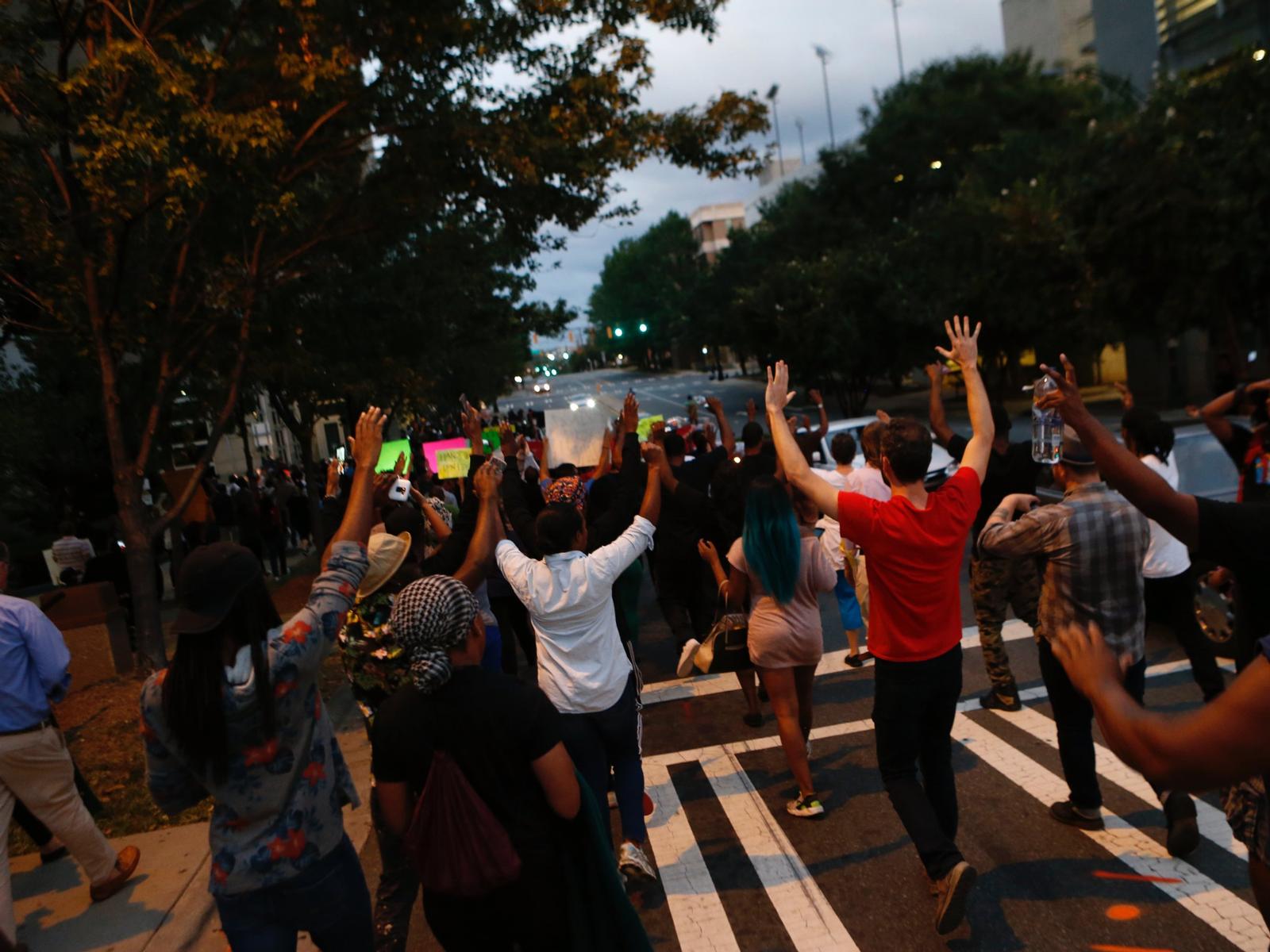by Richard Kostelanetz (October 2016)

“Black Lives Matter” is a misnomer, because the real purpose for those parading that slogan is holding police officers, usually Caucasian, responsible for killing black men disobeying the law. Cops don’t go to work planning to shoot some one; they are provoked. Remember that cops don’t even want to draw their guns, if only because they later must write a report explaining why.
The BLM publicists become counter-productive when they give American police, especially Caucasian, an excuse to ignore black neighborhoods. Rather than invite violence, most police would rather ignore problematic turfs—thus, white police forget about black ‘hoods. If absent from a disaster, they can easily claim they had to be someplace else. Never forget that the principal problem for people in poor neighborhoods is not that the police abuse but that the police don’t show. I know, because I’ve lived in one before and live in one now.
The Christian libertarian commentator Alex Jones notes that if BLM really believed in their slogan they would object to the abortion of black fetuses at a proportion statistically higher than white. True, though that’s another issue.
The BLM publicists must confront the much higher incidence of black men killing other black men (often because they believe that American courts would not give them the justice they seek). Blacks killing other blacks happens far more often than whites killing blacks or, for that matter, whites killing whites. If city police feared entering black neighborhoods, wouldn’t the murder rates increase?
As some of these black killers are repeat offenders, may I suggest that BLM would gain credibility if its advocates arrested a few of these very bad guys. As merely turning them into the police might not be sufficient, consider certain pointed vigilante justice, such as publicly lynching a black serial killer who offs other blacks, to recall a chilling 19th-century American custom, secure that the local law enforcement wouldn’t interfere. Aside from whether black-on-black lynching actually happens, may I suggest that proposing it––merely the image of it–-should have salutary effects.
Don’t ever forget American blacks are not incompetent about safety; they can be effective at policing their own. In my own mostly Latino ‘hood last year, one neighbor on my street, a West Indian Panamanian going afternoons to security work, routinely screamed Spanish insults at two stores that he (and we) thought were selling illegal drugs. Now they’re gone.
For the past dozen years I’ve favored a New York City public beach favored by black and brown families who rarely suffer unruly teenagers. Inquiring, I learned that they go to mostly white beaches further west in the Rockaways. When I happened to visit one of those mostly white beaches myself I was indeed pushed and menaced. These black kids must have judged, at least in NYC’s beach towns, that bad behavior would be less censorious of them on a predominantly white beach.
Because the BLM slogan is aimed at white people while assuming black incapacity, also exploiting the residue of white guilt, its actual effect on the behavior of blacks as well as whites, as distinct from making news, is doomed to be limited. May I suggest that, by contrast, the benefits of such black-on-black vigilante justice would demonstrate that indeed to some American blacks, black lives do indeed matter.
___________________________________________
 Richard Kostelanetz recently completed a book of previously uncollected critiques, Deeper, Further, and Beyond. Individual entries on his work in several fields appear in various editions of Readers Guide to Twentieth-Century Writers, Merriam-Webster Encyclopedia of Literature, Contemporary Poets, Contemporary Novelists, Postmodern Fiction, Webster’s Dictionary of American Writers, The HarperCollins Reader’s Encyclopedia of American Literature, Baker’s Biographical Dictionary of Musicians, Directory of American Scholars, Who’s Who in America, Who’s Who in the World, Who’s Who in American Art, NNDB.com, Wikipedia.com, and Britannica.com, among other distinguished directories. Otherwise, he survives in New York, where he was born, unemployed and thus overworked.
Richard Kostelanetz recently completed a book of previously uncollected critiques, Deeper, Further, and Beyond. Individual entries on his work in several fields appear in various editions of Readers Guide to Twentieth-Century Writers, Merriam-Webster Encyclopedia of Literature, Contemporary Poets, Contemporary Novelists, Postmodern Fiction, Webster’s Dictionary of American Writers, The HarperCollins Reader’s Encyclopedia of American Literature, Baker’s Biographical Dictionary of Musicians, Directory of American Scholars, Who’s Who in America, Who’s Who in the World, Who’s Who in American Art, NNDB.com, Wikipedia.com, and Britannica.com, among other distinguished directories. Otherwise, he survives in New York, where he was born, unemployed and thus overworked.
To comment on this article, please click here.
To help New English Review continue to publish thought provoking articles such as this one, please click here.
If you have enjoyed this article and want to read more by Richard Kostelanetz, please click here.
- Like
- Digg
- Tumblr
- VKontakte
- Buffer
- Love This
- Odnoklassniki
- Meneame
- Blogger
- Amazon
- Yahoo Mail
- Gmail
- AOL
- Newsvine
- HackerNews
- Evernote
- MySpace
- Mail.ru
- Viadeo
- Line
- Comments
- SMS
- Viber
- Telegram
- Subscribe
- Facebook Messenger
- Kakao
- LiveJournal
- Yammer
- Edgar
- Fintel
- Mix
- Instapaper
- Copy Link







